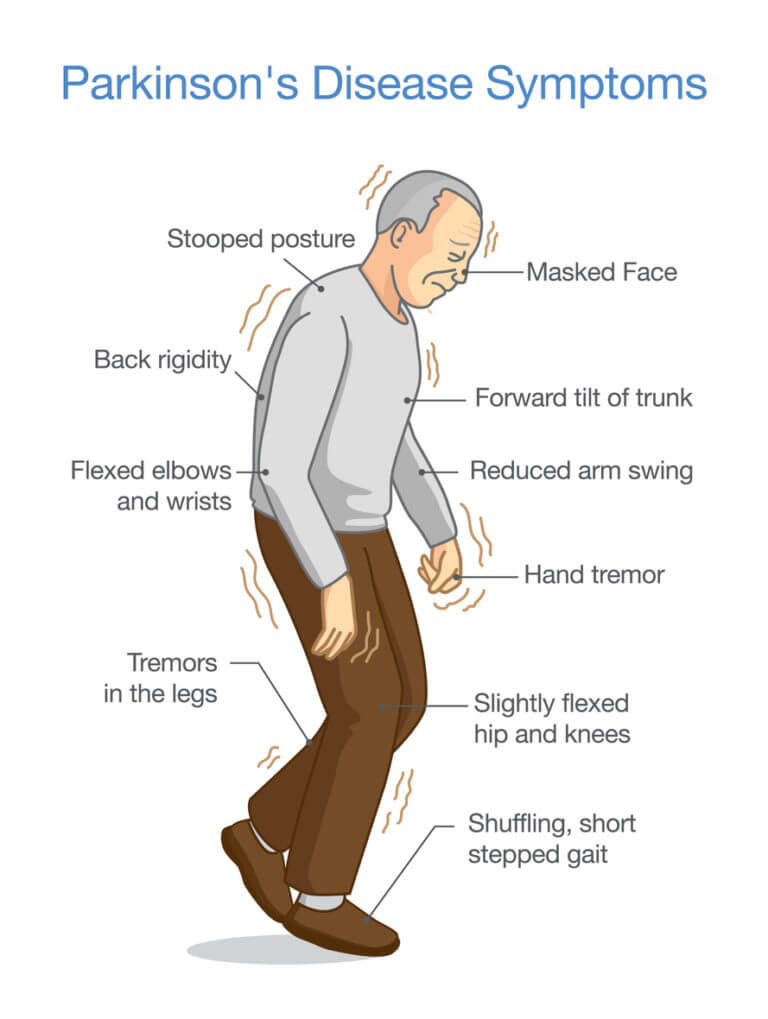
Parkinson’s disease is a degenerative disorder of the central nervous system that can cause the impairment of speech and motor functions. The cause of Parkinson’s disease is still unknown, but researchers found there to be genetic mutations in patients with the condition. Exposure to environmental toxins has been linked to the development of Parkinson’s disease.
In this article, we will discuss the different types of Parkinson’s disease, as well as the different types of treatment.
Types of Parkinson’s Disease
There are two types of Parkinson’s disease: primary and secondary. Primary Parkinson’s disease (PD) is caused by the death of cells in certain areas of the brain, specifically the substantia nigra (SN). The substantia nigra produces dopamine, which helps to send signals between nerve cells in the brain. Secondary PD occurs when another condition or event damages dopamine-producing cells elsewhere in the brain or spinal cord.
Most people with PD experience tremors (shaking), rigidity (stiffness), slowness of movement, and problems with balance and coordination. These symptoms usually develop slowly over time. However, some people may have a more rapid onset or progression of their disease. There is currently no cure for PD. However, there are treatments available that can help manage symptoms and improve the quality of life of those living with this chronic condition.
Treatments for Parkinson’s Disease
Parkinson’s disease usually requires comprehensive treatment to improve the quality of life of the patient. Below are the most common treatments that are a part of Parkinson’s treatment programs:
- Medication: The most common treatment for PD is medication therapy using levodopa/carbidopa (L-dopa). This drug helps to replenish dopamine levels in the brain and can be very effective at improving motor function. Other medications used to treat PD include dopaminergic agonists, MAO-B inhibitors, COMT inhibitors, anticholinergics, and amantadine.
- Surgery: In some cases, surgery may be recommended as a treatment for Parkinson’s disease. This can involve procedures such as deep brain stimulation, which involves implanting electrodes into the brain in order to stimulate certain areas and improve symptoms.
- Physical therapy: Physical therapy can be helpful in improving mobility and range of motion for people with Parkinson’s disease. Therapists may also teach patients exercises that can help improve balance and coordination.
- Occupational therapy: Occupational therapists work with patients on activities of daily living, such as dressing, bathing, eating, and cooking. They also teach energy-conservation techniques that can make tasks and engagement in daily activities easier for people with Parkinson’s disease.
- Speech therapy: People with PD often have difficulty speaking clearly. A speech therapist can work on improving vocal quality, intonation, loudness, and breath support.
- Support groups: There are many different types of support groups and resources available for those living with Parkinson’s disease to help them cope with the challenges associated with this chronic condition, which can also help with improving the quality of life of patients.
Treatment for Parkinson’s Disease in Farmington Hills, MI
The board-certified neurologists at Associates in Neurology are among the top neurology doctors in Michigan, and they specialize in the treatment of patients with Parkinson’s disease. If you or your loved one has been diagnosed with Parkinson’s disease, you are going to need a support system composed of different specialists in order to have a better life. Here at Associates in Neurology, we provide comprehensive care, where we guide not just patients but also their family members and caregivers.
To schedule an appointment with one of our neurologists, call our office today at (248) 478-5512, or use our convenient online request form. We look forward to providing you with the best in neurological care in Southeast Michigan.


